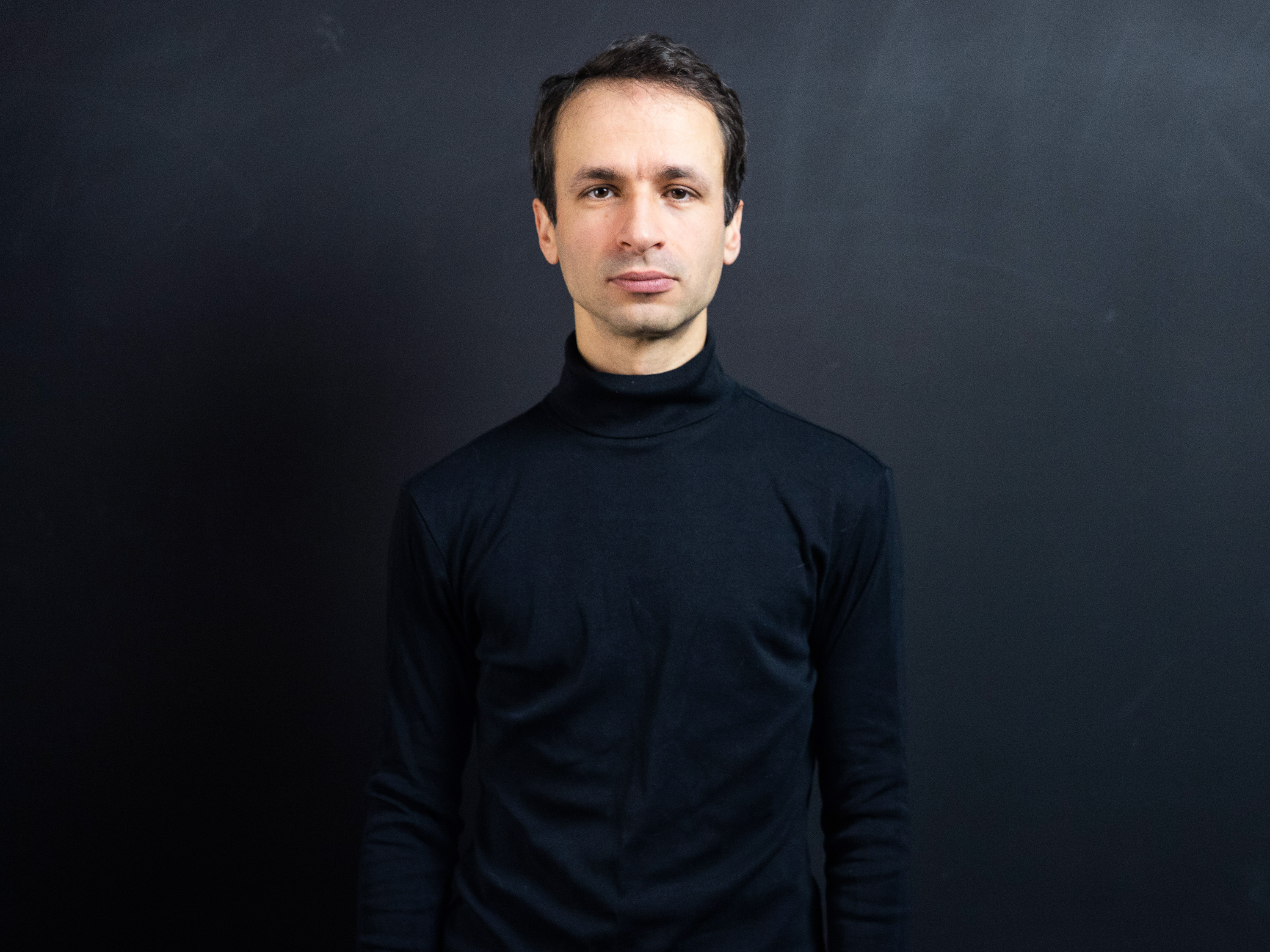
Oskars Herliņš
(06.05.1980 )
"Every composition is an object that contains varied information. Some of this information can be interpreted analytically, understanding how the composition is built. The other information we can interpret intuitively, later reflecting on the emotions felt. Still, beyond all that, there is a sense that the composition becomes an independent, living organism, whose behaviour cannot always be predicted, but the provided information and the understanding of it is transformed based on various influences and gains new meanings. Often these meanings cannot be expressed with the help of language - particularly the relationship to the intuitive method of understanding, and, fortunately, the question what is this composition about? cannot be answered."
Oskars Herliņš
The composer Oskars Herliņš was born on May 6, 1980 in Riga. He graduated the Riga Technical College (1995–2000) and the University of Latvia (2001–2007), where he received a bachelor’s and master’s degree in philosophy. He studied composition at the evening music school Rīdze with Maija Einfelde (2004–2008). Under the tutelage of David Mondrup, he developed a foundation in electronic music during two spring semesters in 2009 and 2010 at the Engelsholm Folk High School in Denmark. Returning to Latvia, he studied composition with Rolands Kronlaks at the Jāzeps Vītols Latvian Academy of Music (2010–2014), which he graduated with a bachelor’s degree and received the Tālivaldis Ķeniņš Award (2014). As part of the Erasmus programme, he studied composition in Sweden, at the Stockholm Royal Music Academy under the direction of Pär Lindgren (2012–2013). He privately studied trumpet (and later euphonium) with conductor and trombonist Dimitrijs Grozovs (2001), as well as composition with Imants Mežaraups.
He has participated in many master classes, including: the international young musicians’ master classes in Ogre (2008), master classes in the programming language Csound and programming environment Open Music with composer Mauro Lanza at the University of Liepāja (2010), composition master classes at the festival Brücken in Rostock (Germany, 2011), the Summer Media Studio film school students’ creative workshop in Juodkrantė (Lithuania, 2012), the international young composers’ workshops in Cēsis (2012) and Mazsalaca (2014), and at Process in Nida (Lithuania, 2013). With his composition Through Imaginary Worlds for electronics he became one of the five winners at the competition Elektrochok organised by the Music and music communication academy in Esbjerg (Denmark, 2009).
He has received awards at many local composition competitions: the international young musicians’ master classes composition competition in Ogre (3rd place, 2008), the festival Arēna young composer competitions (3rd place in the competition The Sound of Language in Middle Eastern Poetry, 2009; 2nd place at the competition Voice Theatre, 2011), the Pēteris Vasks Fund composition competitions (2nd place – 2012, 2014), the composition competition My Folksong (2nd place, 2013). His choir work Sonnet No. 28 was recognised as one of the three best works at the 6th international young composers’ workshop (2012). His first compositions in the field of electronic music were created in the mid-1990s with the computer ZX-Spectrum 128, using its three sound channels and 8 bit sound resolution. At the end of the 1990s, he independently began to study the electric guitar and performed in various rock and jazz ensembles (guitar and vocals), as well as writing music for this (receiving many awards in various new group competitions).
Studying the trumpet (later euphonium), he performed in various wind orchestras. Studying at the University of Latvia, he sang in the mixed choir Juventus. In the 2nd half of the 2000s, Oskars Herliņš focused more on composition, slowly abandoning regular performance in the noted groups. In 2009, the Norwegian record company Mars Melons released an untitled EP, but in 2012 the same record company released a full length album Skaņdarbi sintētiskajam orķestrim (Works for Synthetic Orchestra). The works on these releases could be characterised as ambient/electronica/experimental music. Altogether, Oskars Herliņš works in varied genres, writing music for concert performance, film, theatre and multimedia projects. He has worked together with such collectives as the Latvian Radio Choir, the Latvian National Symphony Orchestra, Sinfonia Concertante, Sinfonietta Rīga, UMS`n JIP (Switzerland), Divertimento Ensemble (Italy), Kammarensemblen (Sweden), Norrbotten NEO (Sweden), and others. His works have been performed in many European countries. In parallel with composition, Oskars Herliņš has worked as a teacher of solfeggio and music literature at the Birzgale Music School (2010–2013). As of 2013, he teaches solfeggio and music literature at the Latgale Suburb School of Music and Art, as well as music theory and composition at the Ogre Technical School. For the Ogre Technical School, he developed a course of study which is oriented towards the study of the foundations of electronic music composition, as well as introducing 20th/21st century academic and non-academic music.
